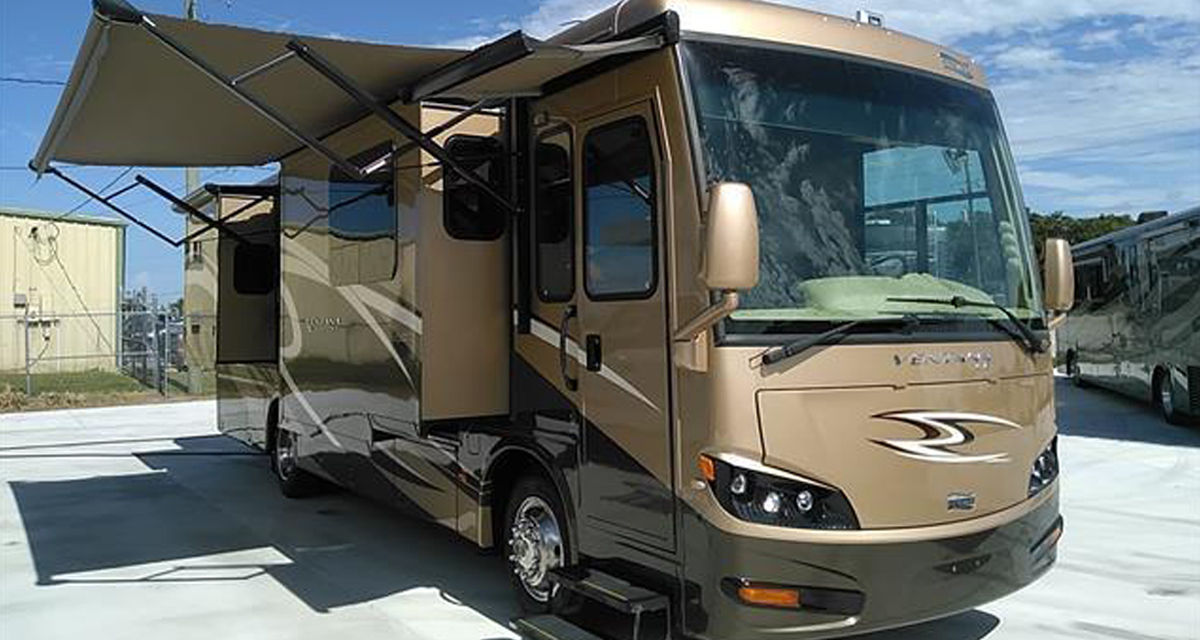
Are you planning to sell your RV? Maybe you've already listed your awesome motorhome or camper for sale. In most cases, the buyer contracts with their own unbiased, third-party RV inspector. Other times, sellers take the initiative to get an independent RV inspection. When you properly prepare for an RV inspection, it ensures a successful and seamless experience for both the RV seller, and the potential RV buyer.
In short, a pre-purchase RV inspection empowers you to:
Determine the right price: Get a clear understanding of the RV's condition to ensure the RV is priced fairly.
Smooth negotiations: Make the process easier by addressing any issues upfront and finding mutually beneficial solutions.
Streamline the sales process: Speed up the transaction with an inspection report that provides comprehensive information about the RV's condition.
Reduce potential liabilities: Minimize the risk of post-sale disputes by disclosing any known issues beforehand.
RV inspections are in-depth and provide a wealth of valuable information. In fact, the typical inspection can last anywhere from 4-10 hours.
There are several things sellers can do to help facilitate and prepare for an RV inspection. By addressing any potential issues beforehand, you'll be able to streamline the inspection process and set yourself up for a positive outcome.
Here’s what we recommend based on our years of experience as Master Certified RV inspectors, having inspected close to a thousand RVs since 2017.
Have all RV accessories and RV documentation ready
While you're waiting for the RV inspector to arrive, make sure you use that time wisely to gather all the necessary items they'll need to inspect your RV thoroughly from top to bottom.
Have all necessary keys ready, including entrance doors, cargo bays, fuel doors, and ignition (if applicable).
Gather relevant literature such as owner manuals, service receipts, and maintenance logs.
Make RV accessories easily accessible, including remote controls, jack cranks, and awning pull down rods.
Provide all water hoses, sewer hoses or connections, and electrical adaptors or connectors.
Give the RV inspector room to work
An RV inspector needs to be able to inspect every square inch of your motorhome, fifth wheel or travel trailer. Make the process as easy as possible by removing your personal belongings from the RV, including from exterior storage bays and interior cabinets and closets. This includes even the small stuff, like bed linens, food, clothing, toiletries, etc.
Beyond removing items, park your RV in a space that allows for a ladder to be safely moved around all sides of the RV. The space should also allow for the inspector to fully extend all awnings and slide-out rooms. Remove all wheel covers and level your RV as much as possible.
To further streamline the inspection process, ensure that no RV buyer walk-throughs, RV repairs or RV cleaning services are scheduled to take place at the same time as the inspection.
Prep and hook up your RV just like you would at a campground
An inspector needs to know how your RV will operate in an environment that’s as close as possible to what a buyer might experience the first time they take it out on the road and hook it up at an RV park. Some important things to consider include:
RV Electrical Systems:
When it comes to electricity in your RV, there are two main types: alternating current (AC) and direct current (DC). AC power is what you get from standard outlets like those at campsites, generators, or your home. It's also known as “shore power” in the RV world and is responsible for running large appliances.
On the other hand, DC power is similar to the electrical system in your car. It's the energy stored in your RV's house batteries and generated by solar panels.
When you prepare for an RV inspection, it’s crucial to have the appropriate electrical systems in place. Ensure you have the appropriate 50 Amp or 30 Amp “shore power” supply to connect to.
IMPORTANT: Plugging an RV into 15A and 20A “house power” is NOT sufficient because it may cause potential damage to RV components and does not allow for full testing.
RV Water System and Holding Tanks:
Having a city water connection is strongly encouraged to ensure proper testing of all components and fixtures. If a city water connection is unavailable, ensure that the freshwater tank is full.
Though not mandatory, having RV wastewater or RV sewer hookups available is recommended because it allows for the most thorough inspection possible.
RV Refrigerator:
There are three types of refrigerators found in RVs – absorption, compressor, and residential – and depending on the type, different recommendations apply.
To fully evaluate the functionality of an RV absorption refrigerator, it must be powered on at least 12 hours before the scheduled inspection time. Residential-type and compressor-type refrigerators should be powered on for a minimum of 4 hours. This ensures that any RV refrigerator has sufficient time to cool and allows the inspector to assess its performance accurately.
RV Propane Systems:
Depending on whether you want to sell a motorhome or sell a towable RV like a travel trailer or fifth wheel, your propane setup will differ slightly.
Motorhomes usually feature built-in ASME propane tanks, which are regulated by the American Society of Mechanical Engineers. On the other hand, travel trailers and fifth wheels utilize removable DOT tanks regulated by the Department of Transportation. Smaller travel trailers and fifth wheels typically have one tank, while larger campers often have two.
To properly examine the propane system, ensure that the propane tanks are at least half full. This allows the inspector to test the RV propane system thoroughly and identify any potential issues.
RV Fuel for Engines and Generators:
RV generators typically rely on three common fuel sources: gasoline, diesel, and propane.
In motorhomes, the type of fuel your generator uses generally corresponds to the primary fuel source of your RV. In most cases, this also provides a fuel source for the RV generator.
When it comes to preparing for an RV inspection, it's important to ensure that the fuel level in your RV's engine or generator is at least half full. This allows the inspector to perform tests and ensures that the generator functions properly during the inspection.
Check out The Complete Guide To RV Generators from our friends, Mortons On The Move.
Prepare for an RV Inspection: Cold Climate Considerations
Winter RV inspections can present unique challenges due to cold temperatures and freezing conditions. Some items may be difficult to fully evaluate in these conditions, such as fresh and wastewater plumbing/drains, air conditioners, water heaters, appliances like clothes and dishwashers, and refrigerators.
If the RV has been winterized, the dewinterization process must be completed before the RV inspection appointment. In most cases, the RV inspector does not winterize or dewinterize the water system for liability reasons.
It's important to note that if there is snow or ice on the roof, it can obstruct visual inspection and pose safety hazards. If possible, it is recommended to bring the RV inside a heated area with adequate utilities and clearances to ensure a comprehensive inspection can be performed.
Expectations and Communications
In order to remain unbiased, the inspector typically prefers to communicate only with their client. If the seller has hired the RV inspection company, communications can flow openly between the parties.
If the buyer has contracted with the inspector, the responsibility to schedule inspections and provide pre-inspection checklists falls to the buyer. This process ensures that the client is confident that the seller has received all the information necessary to prepare for an RV inspection.
Inspection reports are typically delivered on the same day, unless there are travel or technological issues. Some inspectors prefer to schedule a consultation with their client on the same evening of the inspection. This allows them to discuss their findings and become familiar with the Project List feature included in their software. The Project List feature facilitates repair negotiations on the following business day.
Prepare for an RV Inspection: Set yourself up for success
RV inspection reports usually contain four different categories of issues found: Life Safety, Major, Minor and Notice/Comments.
In order to decrease the number of Life Safety and Major issues on the RV inspection report, we’ve compiled a list of quick, easy fixes that a seller can do, or check, prior to a scheduled RV inspection by a certified RV inspector.
Examine and test your emergency exit windows. You shouldn’t need more than 20 pounds of pressure to open them.
Ensure the rubber grommets on the exterior portion of RV water heaters are fully sealed with high-temp silicone, to prevent carbon monoxide from entering the RV.
Remove any combustible materials from the exterior cooling coils’ burn chamber in an RV-type absorption refrigerator. This is accomplished by cleaning the rear of the refrigerator through the access door on the outside of the coach and possibly through the roof vent. You can either blow the area clean with compressed air or vacuum away the dust and dirt.
Check if the fire extinguisher has ever been recalled, ensure it is less than 12 years old, mounted within 24 inches of the RV door, and is fully charged.
Test LP (propane), CO and smoke detectors and check manufacture dates. Make sure the detector specifically states that it’s for use in an RV.
LP detectors should be no older than five years past the manufacture date.
Carbon Monoxide (CO) detectors should be no older than five to seven years past the manufacture date.
Smoke detectors should be no older than 10 years past the manufacture date.
All of these devices will list manufacturer-specific details regarding how long they’re safely usable.
Check RV tire date codes and tire pressures. The National Highway Safety Administration recommends replacing RV tires around 6 years of age regardless of mileage or usage. Consider checking the RV tire manufacturer for their recommendations as well.
Check the overall RV roof condition as well as the lap sealant around RV roof penetrations for damage or deterioration.
When Sellers Prepare for an RV Inspection, It Can Pay Off
We understand that everything we’ve mentioned can seem like an excess of extra chores. When you properly prepare for an RV inspection, it can definitely pay off in big ways. The RV inspector will be able to do their job in full and can provide the most thorough and complete report possible.
If you’ve made sure your RV is in the best (and safest) condition possible, then the RV inspection report will likewise reflect that. This means that you have a better chance of selling your motorhome or towable RV at your desired price and spending less time negotiating before making the sale.
Ready to book an RV inspection?
First, become a member so you can save your favorite RV service pros for later, contact them for a quote, leave comments and reviews and more.
Then, find an RV inspector near me using My RV Resource’s robust search engine. It lists thousands of RV service providers located all over North America, specializing in every RV service you could possibly need, from inspection to repairs, detailing to towing.

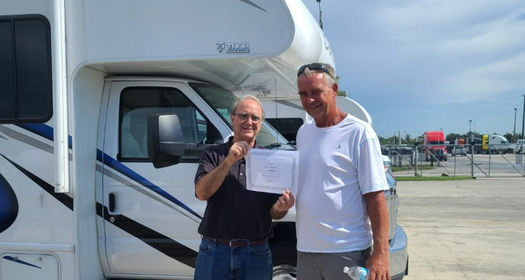
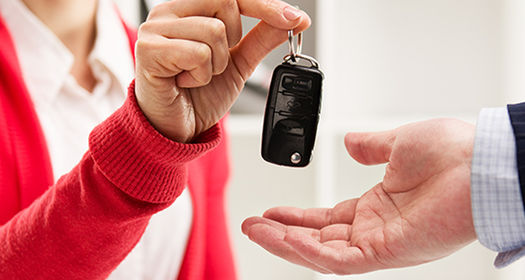
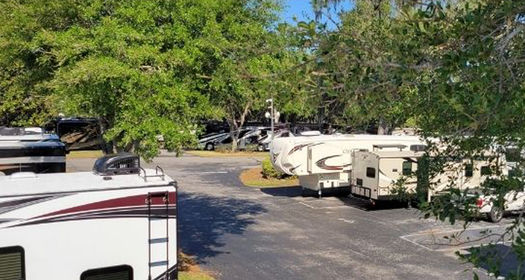
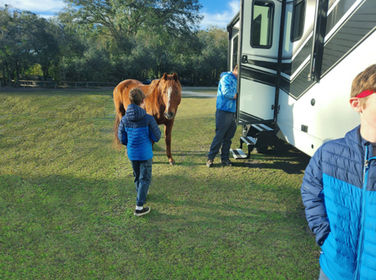
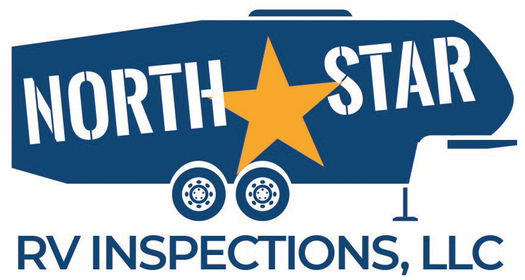
Leave Comment Below
0 Comment(s)